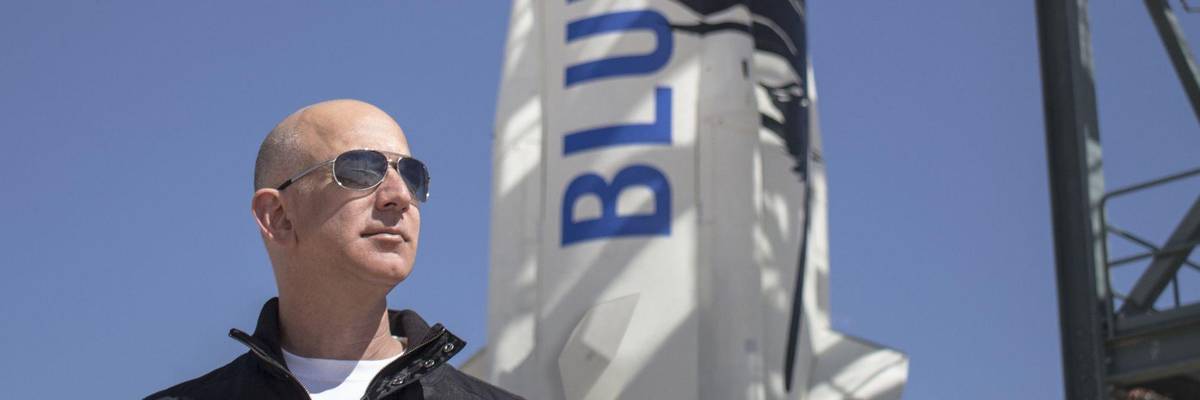

SUBSCRIBE TO OUR FREE NEWSLETTER
Daily news & progressive opinion—funded by the people, not the corporations—delivered straight to your inbox.
5
#000000
#FFFFFF
To donate by check, phone, or other method, see our More Ways to Give page.


Daily news & progressive opinion—funded by the people, not the corporations—delivered straight to your inbox.

Jeff Bezos, the world's richest man and founder of Blue Origin, his space technology company that he funds with the massive fortune he made with online retailer Amazon. (Photo: Courtesy of Blue Origin)
With all due respect to Jeff Bezos and other billionaires who plan to spend billions of dollars of their personal wealth on space travel, hundreds of millions of children who lack access to basic health care and schooling more urgently need help right here on Earth.
Dear Common Dreams reader, The U.S. is on a fast track to authoritarianism like nothing I've ever seen. Meanwhile, corporate news outlets are utterly capitulating to Trump, twisting their coverage to avoid drawing his ire while lining up to stuff cash in his pockets. That's why I believe that Common Dreams is doing the best and most consequential reporting that we've ever done. Our small but mighty team is a progressive reporting powerhouse, covering the news every day that the corporate media never will. Our mission has always been simple: To inform. To inspire. And to ignite change for the common good. Now here's the key piece that I want all our readers to understand: None of this would be possible without your financial support. That's not just some fundraising cliche. It's the absolute and literal truth. We don't accept corporate advertising and never will. We don't have a paywall because we don't think people should be blocked from critical news based on their ability to pay. Everything we do is funded by the donations of readers like you. Will you donate now to help power the nonprofit, independent reporting of Common Dreams? Thank you for being a vital member of our community. Together, we can keep independent journalism alive when it’s needed most. - Craig Brown, Co-founder |
With all due respect to Jeff Bezos and other billionaires who plan to spend billions of dollars of their personal wealth on space travel, hundreds of millions of children who lack access to basic health care and schooling more urgently need help right here on Earth.
With all due respect to Jeff Bezos and other billionaires who plan to spend billions of dollars of their personal wealth on space travel, hundreds of millions of children who lack access to basic health care and schooling more urgently need help right here on Earth.